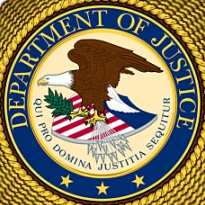 Ryan Lang has become the latest Black Friday indictee to enter a guilty plea in US District Court in Manhattan. On Tuesday, Lang pled guilty to conspiring to commit tax fraud plus violations of the Unlawful Internet Gambling Enforcement Act (UIGEA) in relation to his role in processing payments for online poker companies indicted by the US Department of Justice on April 15, 2011. Sentencing is set for Sept. 24, giving Lang lots of time to contemplate the potential 30 years of hard time he faces in a US correctional facility.
Ryan Lang has become the latest Black Friday indictee to enter a guilty plea in US District Court in Manhattan. On Tuesday, Lang pled guilty to conspiring to commit tax fraud plus violations of the Unlawful Internet Gambling Enforcement Act (UIGEA) in relation to his role in processing payments for online poker companies indicted by the US Department of Justice on April 15, 2011. Sentencing is set for Sept. 24, giving Lang lots of time to contemplate the potential 30 years of hard time he faces in a US correctional facility.
In his plea, Lang described himself as a “middleman” between poker companies and payment processors looking to trick banks into moving the online poker money around. A Canadian, Lang claims he worked from Canada to set up shell companies in order to convince financial institutions that what was going on was on the up and up. Lang told the court that he wished “to publicly apologize to anyone I’ve harmed by my conduct,” which has no doubt sent intrepid journalists on a futile quest to locate anyone who has been harmed more than the indicted poker sites’ former players, many of whom are still waiting to receive payouts of their account balances partly as a result of the DoJ’s actions.
Lang’s plea is the first since payment processing figure Ira Rubin pled guilty to similar charges in January (sentencing is set for May 17). Absolute Poker principal Brent Beckley threw himself on the mercy of the court in December. Of the 11 individuals indicted on Black Friday, four have pleaded guilty (the other being Bradley Franzen), while AP’s Scott Tom, PokerStars’ Isai Scheinberg and Paul Tate, plus Full Tilt Poker’s Ray Bitar and Nelson Burtnick remain ‘at large.’
Two other Black Friday indictees, former Sunfirst Bank exec John Campos and payment processor Chad Elie, have pled not guilty to their charges. Earlier this week, attorneys for the two men unveiled a little more of their defense strategy. As described in detail by former Subject: Poker writer Diamond Flush, the defense is seeking permission to present the jury with evidence that online poker doesn’t meet the definition of “gambling” as defined by the Illegal Gambling Business Act (IGBA) or the UIGEA’s definitions of “unlawful internet gambling” and “game of chance.”
As precedent, the defendants’ in limine motion cites the 1995 case of United States v. Gaudin, in which the US Supreme Court ruled that it was the jury’s role – not the court’s – to determine whether the facts of a case cleared the necessary legal hurdles to charge someone with a crime based on those facts. The defense also cited Apprendi v. New Jersey (2000), which ruled that juries are required to be presented with “all facts necessary to constitute a statutory offense”. The US government has countered with its own filing, which can be summed up as ‘that’s bullshit.’ The Elie/Campos trial is set to begin April 9.